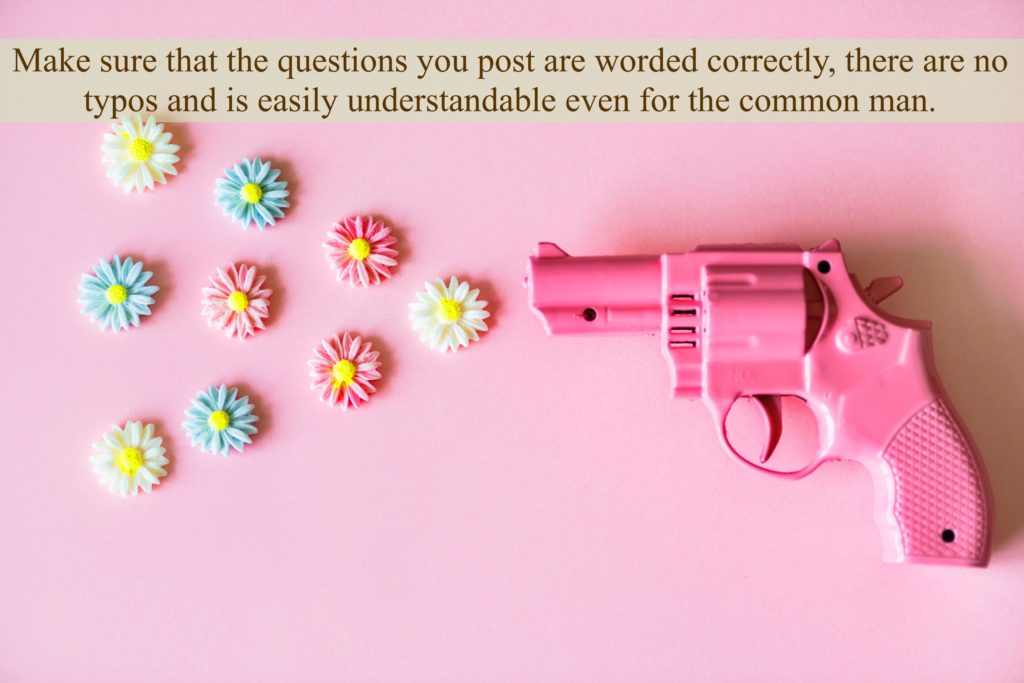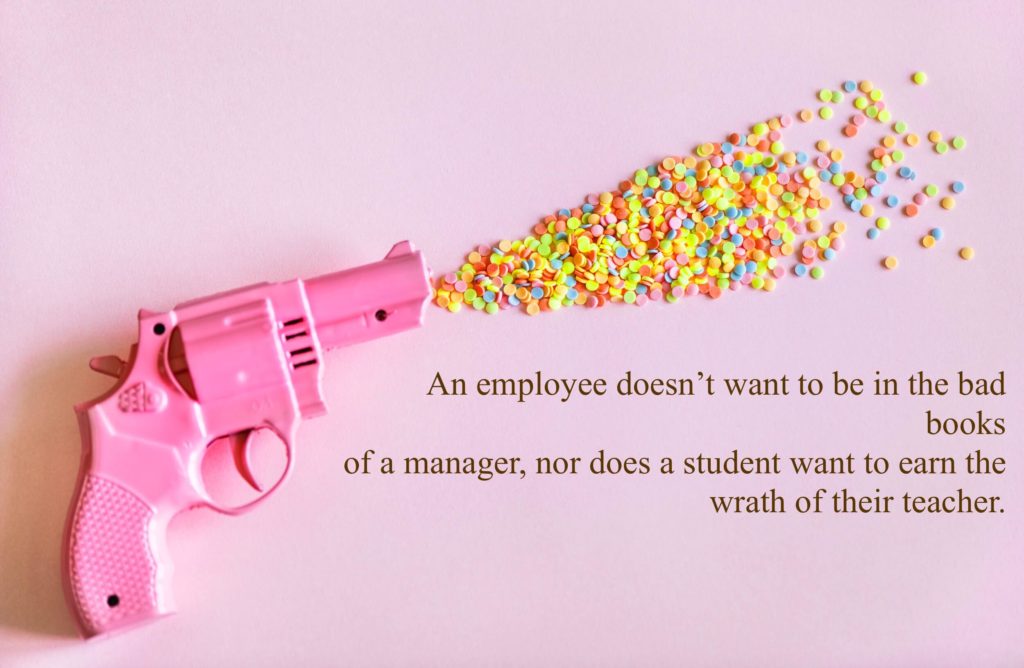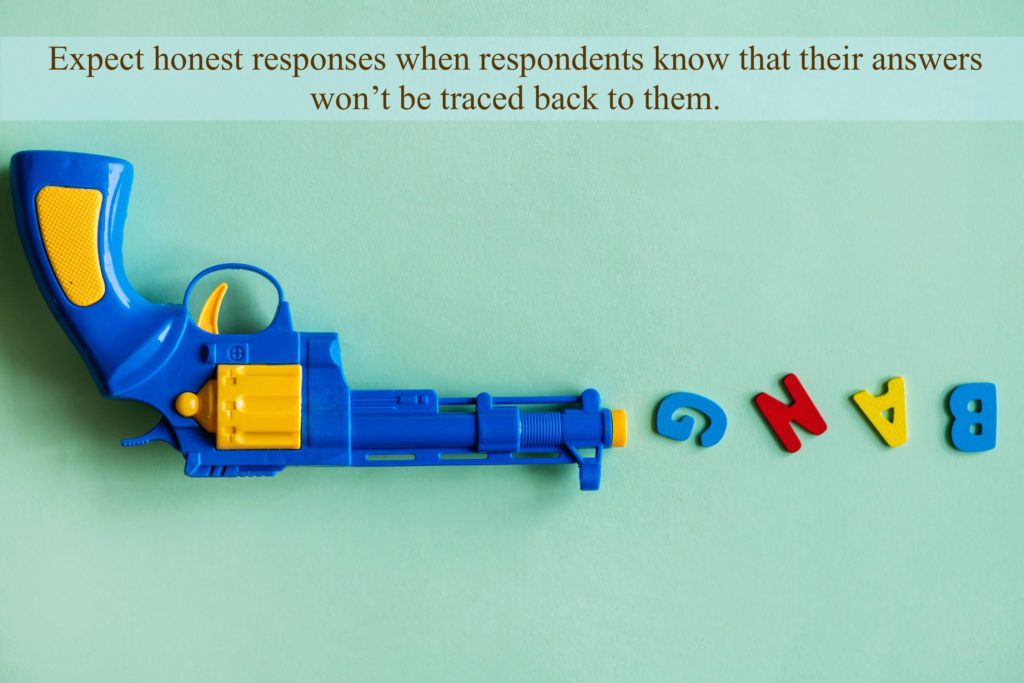Customer Experience
How to Use Anonymous Surveys to Collect Sensitive Data
Article written by Mathew Maniyamkott
Regular contributor to various magazines. Passionate about entrepreneurship, startups, marketing, and productivity.
8 min read
31 May 2024

“You are requested to participate in this anonymous survey.”
Sonia sighed and clicked on the survey – a mental health questionnaire. It was a mail from HR so she couldn’t ignore it. But as the questions became increasingly personal, she hesitated. A few thoughts crossed her mind:
“Who’s going to see this?”
“Will they know it’s me?”
“What if they judge me?”
“Will I lose my privacy?”
“What if my answers are leaked?”
It’s perfectly normal to have these fears when we come across uncomfortable questions in a survey. That’s why we recommend anonymous surveys for such topics.
But are your anonymous surveys really anonymous?
7 essential tips to create anonymous surveys
Here are some of the best practices that your business can follow while creating an anonymous survey.
- Ask fewer sensitive questions
- Disclose your privacy policy
- Disclose your identity
- Don’t use custom variables
- Review the questions
- Show them the results
- Store the data safely
#1. Ask fewer sensitive questions in the beginning
Doing an anonymous survey is like going on a blind date. You need to establish a rapport with the respondent first – you don’t want them heading for the nearest exit, do you? So it is best to start with light questions and then move on to more sensitive topics. Here are a few ice-breakers you can use:
- How are you doing today?
- Had breakfast?
- In general, would you say that [topic] is:
- Excellent
- Good
- Okay
- Poor
- Unstable
To make your job easier, you can also use templates with readymade questions. If you wish to test them, it’s easy to create an anonymous survey for free.
A personalized walkthrough by our experts. No strings attached!
#2. Disclose your privacy policy
Do you need informed consent on anonymous surveys? No, but it is best to share a privacy policy when you send your survey. This should be shown before the start of the survey and include the details below. These details will ensure that your surveys get a better response.
- The reason behind going anonymous.
- The purpose for which the survey is being conducted.
- The target audience of the survey.
- What you intend to do with the results of the survey.
- Whether you will be sharing the results with anyone. If yes, whom?
- Assure the respondents that their privacy is guaranteed.
- Allow them to opt out of receiving survey invitations.
#3. Disclose your identity
While introducing yourself again and again might seem like a waste of time, it’s absolutely necessary. That’s because there are chances that your respondents will share your survey link in different forums. People outside of your respondent list might not necessarily know who you are, even if they are part of your target audience.
What’s more, people are wary of responding to surveys from anonymous or generic accounts. White-labelling your survey helps establish your identity. This lets people know that you are a trustworthy entity.
#4. Don’t use custom variables in anonymous surveys
When you make anonymous online surveys, it’s best not to include questions which can potentially identify the respondent. So avoid using custom data or custom variables like:
- Name
- Age
- Gender
- IP address
- Preferred shoe colour and so on
#5. Review the questions. Again.
Even if we avoid custom variables, there are chances that we might accidentally ask a question that can potentially identify our respondent.
The solution? Pilot test your anonymous surveys by sending them to different stakeholders. The answers will reveal any irrelevant questions or answers that can potentially uncover the person’s identity.

#5. Write clear questions
Avoid vague language when conducting anonymous surveys, and limit the question only to what’s necessary. That’s because there’s a good chance that your question will be misunderstood. This might lead to unexpected results that are totally beyond the intention of the questioner.
Anonymous surveys tend to be online so it’s difficult to contact the respondent for clarification. So make sure that the questions are worded correctly, there are no typos and are easily understandable even for the common man.
#6. Show them the results
Once the anonymous survey is done, you can share the report with your respondents. This follow-up has the twin benefit of making your respondents feel valued, and curious to know the overall results.
Yes, you can even send the survey results to the ones who didn’t respond. It will reassure them that your business is using the data for a valid purpose and has tangible benefits. If you want to restrict access to just your respondents, you can tell them how and when to access the results in the survey reminders.
#7. Store the data safely
In certain contexts, like government and healthcare, it’s required by law. The General Data Protection Regulation (GDPR) has strict safeguards for collecting, processing and managing personal information.
That’s why SurveySparrow is GDPR-compliant – so that you can protect sensitive data while using it to take action for growth.
When should a survey be anonymous?

1. When the respondent fears a backlash
We are conditioned to respect authority. So imagine having to fill out an employee disciplinary action form against a manager. Naturally, you will think twice about your answers because you don’t want that person to hear about it. The same goes if you were a student asked to give feedback about the teachers or the principal. This is where anonymous surveys can help.
2. When the questions are personal or uncomfortable
Questions on sensitive topics such as psychological issues, criminal behaviour, religion, divorce, etc. are a grey area. Some might choose to answer, some won’t. But that is understandable because most people don’t openly discuss such topics, even with their friends – let alone a company. A layer of anonymity can make it easier for them to disclose sensitive or stigmatizing details.
3. When the law dictates
National and international regulations exist for data privacy – especially in areas where personal data is strictly monitored. For example, Health Insurance Portability and Accountability Act (HIPAA) regulations in US want business establishments, including hospitals, to protect the privacy of patients. In such cases, it is illegal to gather patient details through surveys. Anonymous questionnaires make it possible to do research while respecting the patient’s privacy.
What are the benefits of an anonymous survey?
Below are some of the benefits of setting surveys to ‘anonymous’:
- Respondents can fearlessly answer questions in a survey without being judged or singled out.
- An anonymous employee survey can be a safe space for honest employee feedback – especially if the work culture promotes an atmosphere of distrust.
- It encourages candid answers on questions or topics of a sensitive nature.
- Anonymous questionnaires are ideal for scenarios where the subject is a manager, colleague or authority figure.
- You’re more likely to get greater data accuracy as well as actionable insights.
- People with social anxiety or an introvert nature respond better to anonymous surveys.
- Anonymous surveys let the respondent focus on the question, not what they are going to craft as an answer.
- It has the potential to build trust between the respondent and the business alike.
- You can expect better response rates with anonymous questionnaires.
- Anonymous surveys help transparency without violating the respondent’s privacy.

Wrapping Up
Unless you’re doing market research, segmenting customers or following-up on a location-specific complaint, personal details aren’t actually necessary (more like a good-to-have) for an insightful analysis.
But as discussed above, there are certain situations where anonymous surveys are not just vital but mandatory. Thus, the tips in this blog will help you craft secure anonymous surveys. After all, in order to gain insight, the first and most important thing you need is trust.
Start 14 Days free trial

Mathew Maniyamkott
Guest Blogger at SurveySparrow
Related Articles

Customer Experience
Exploring Customer Journey Mapping - An Interview with Jim Tincher
15 MINUTES
26 January 2020

Best Of
Customer Journey & SEO: Understanding the Impact on Marketing Success
12 MINUTES
9 February 2024

Reputation management
8 Better Alternatives to Reputation Defender: Real Results in 2025
20 MINUTES
28 April 2025

Alternative
10 Best SoGoSurvey Alternatives & Competitors In 2024
10 MINUTES
20 June 2023
